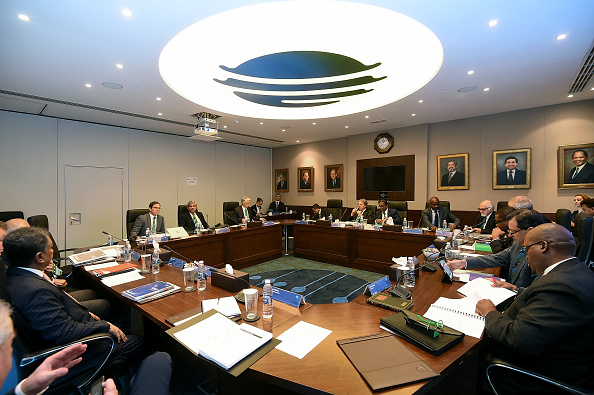ICC defends Kumar Dharmasena's decision to grant six runs for overthrow in World Cup Final
The ICC have publicly defended the controversial overthrow call made in the World Cup final, stating that the Umpires followed protocol while making the decision. Umpire Kumar Dharmasena had incorrectly signaled six overthrow runs in the final, which has since sparked debate and controversy.

The International Cricket Council (ICC) have publicly defended the controversial overthrow call made by umpire Kumar Dharmasena in the final for the first time, stating that the umpires followed protocol while making the decision. When Martin Guptill's throw hit the bat of a diving Ben Stokes and raised off to the boundary, on-field umpire Dharmasena signalled six runs, which back then, everyone believed was the right decision.
However, a further in-depth examination of the law revealed that the sixth run should only have been counted had the two batsmen crossed over before the throw was delivered, but replays showed that the two batsmen had not crossed at the time of Guptill releasing his throw, and hence five runs should have been awarded instead of six. The incident has sparked debate and controversy ever since, with former cricketers and experts alike blasting the ICC and the umpiring, stating that it should have been referred to the third umpire and reversed.
However, ICC's general manager of cricket Geoff Allardice has now come forward and defended the on-field call of Dharmasena, stating that the umpires got together and followed the right process, while also saying that both on-field umpires were well aware of the rule. He also revealed that the ICC protocol doesn't permit the umpires to refer to the Third Umpire in such cases, and hence the on-field Umpires had to take a call in the heat of the moment.
"They (on-field umpires) had to make a judgement call on the day as to whether the batsmen had crossed when the throw was released. After everything that went on during that delivery, they got together over their comms system and made their decision. They certainly followed the right process when making the decision," Geoff Allardice told ESPNcricinfo.
"They were aware of the law when they made the judgment about whether the batsmen had crossed or not at the time. The playing conditions don't allow them to refer to such a decision to a third umpire. The match referee cannot intervene when the umpires on the field have to make a judgement call like that," he explained.
Allardice also said that the entire World Cup final will be reviewed and considered by a panel led by former Indian cricketer Anil Kumble, but the panel is not scheduled to meet until 2020.
When asked if the Super Over was the correct and ethical way in order to crown a winner in case of a tie, Allardice said that the idea was to not have a shared trophy in case of a tied final, and that the Super Over has been in the rules to be the tie-breaker in a final, ever since 2011.
"The consistent view has been that the World Cup final needs a winner and a Super Over was in the playing conditions to decide a tied Final in each of the last three World Cups (2011, 2015 and 2019)," he concluded.

Comments
Sign up or log in to your account to leave comments and reactions
0 Comments